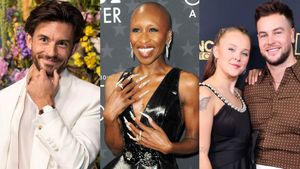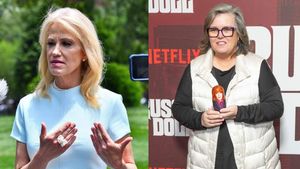When marginalized groups face discrimination in the health care system, the results can be far-reaching and drastic. Across LGBTQ+ communities, this experience is all too well known. For years, activists have pointed out that health care for LGBTQ+ Americans is “under attack,” and bias is thriving. People frequently face gaps in health services, treatment, and outcomes.
There's another aspect of this problem that needs to be addressed. It’s one that has a direct, immediate impact on the health and wellness of millions of people: an information gap. In many cases, LGBTQ+ Americans have learned not to trust traditional sources of health information. Many also have had trouble receiving the information they need from these sources when they ask for it. As a study found, “There is breadth of evidence documenting LGBTQ+ individuals’ experiences of heterosexism, homophobia, overt discrimination and pathologization in the health care setting, which has proven to be a barrier for LGBTQ+ individuals seeking health information from doctors.”
This problem doesn’t just apply to doctor’s offices. It also applies to other entities such as government health agencies, hospitals and pharmaceutical companies. We explored this in our new survey.
We found that LGBTQ+ Americans are substantially more likely to get sick due to a lack of information. Twenty-seven percent of LGBTQ+ respondents told us that they have gotten sick in the last 12 to 18 months because they did not have the information they needed to make decisions about their health. (Eighteen percent of non-LGBTQ+ respondents said the same.)
To be clear, LGBTQ+ Americans are active in seeking out health information. But the sources they’re turning to don’t always have all the accurate, relevant, inclusive information that they need.
We looked at where LGBTQ+ Americans are going when they need health information. Much like Black Americans, LGBTQ+ Americans have curated sources they trust. We call these “chosen circles.” Two findings in particular were striking.
Forty-one percent of LGBTQ+ respondents in our survey said they get health information from TikTok -- a figure about twice as high as the 21% of non-LGBTQ+ respondents who said the same.
News reports have discussed the role of TikTok in reaching members of LGBTQ+ communities, particularly younger people. The San Francisco Chronicle podcast Fifth & Mission called the social media platform “a lifeline for LGBTQ youth.” Mashable reported that, according to the Trevor Project, TikTok is where LGBTQ+ youth of color feel safest and most comfortable online.
The fact that LGBTQ+ communities are specifically seeking health information on TikTok presents an opportunity for health agencies and organizations. They should build up their efforts on this platform. It’s up to them to make sure that videos are available, providing accurate, helpful information about a wide range of health topics.
They should also work with popular influencers on the platform to reach LGBTQ+ Americans with important health information. More than a third (36%) of LGBTQ+ respondents in our survey said that online influencers they follow are an important source of health information. And they share information as well. More than a third said they have shared their own health information, or reposted health information from other sources, on social media. So these platforms can be especially helpful in improving health outcomes.
In our survey, more than a quarter (28%) of LGBTQ+ respondents said they turn to mental health therapists and counselors for emotional support in making health decisions. Again, this figure is lower among non-LGBTQ+ Americans.
This offers another opportunity for health-focused agencies and organizations. By working with people who provide therapy and counseling to LGBTQ+ communities and getting them the latest, most useful information on all sorts of health problems, these agencies and organizations can reach people in need.
Our survey also finds that no matter where they’re getting information, LGBTQ+ Americans understandably want to see people like them front and center. They want information specifically designed to reach them, addressing their experiences and unique challenges. And in all communications, they want health information providers to show that they understand the broad diversity of LGBTQ+ communities, spanning different races, religions, gender identities and more.
The need for change is urgent. By listening to, learning from, and partnering with members of LGBTQ+ communities, health agencies and organizations can create real transformation, empowering people with information to live healthier lives.
Tayla Mahmud is the executive vice president of health equity and multicultural strategy with M Booth Healthm a health consultancy and communications agency. Peter Matheson Gay is its chief impact officer.
Views expressed in The Advocate’s opinion articles are those of the writers and do not necessarily represent the views of The Advocate or our parent company, equalpride.




































































Charlie Kirk DID say stoning gay people was the 'perfect law' — and these other heinous quotes